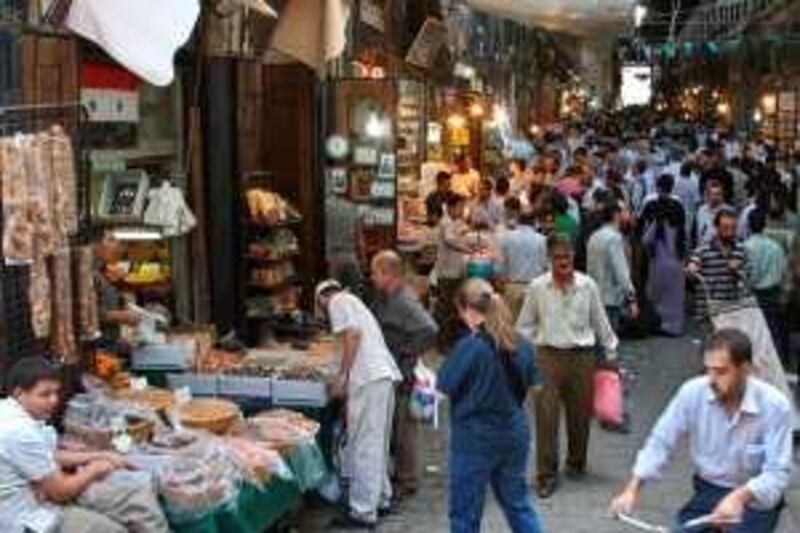Damascus // A significant growth of tourism in Syria, worth billions of dollars to the national economy, has come as a pay-off from successful foreign policies, according to senior government officials.
They also promised to further increase the number of tourists to Syria, saying it helped to "correct misrepresentations" about the country. Although the Obama administration has increased contacts with Damascus and has nominated a new ambassador after five years in which the post was left vacant, Syria remains under US sanctions, classified by Washington as a "state sponsor of terrorism". On Tuesday, the US defence secretary Robert Gates accused Syria, in conjunction with Iran, of supplying the Lebanese militant group Hizbollah with sophisticated rockets and missiles.
However, such concerns - far from new - have had little discernible impact on a booming tourism industry, and government ministers expect growth to continue unabated this year. Syria has become popular with European visitors, and even made it into The New York Times top 10 places to go in 2010, even though the US government's blockade has prevented Syria's national carrier from buying new aircraft, all but grounding its ageing fleet of Boeings.
"Tourism in Syria has benefited from the diplomatic and foreign policy successes, and a good promotion programme," Sardullah Agah al Qalla, the minister for tourism, told a conference of industry figures and potential investors in Damascus this week. Journalists from across the world have, of late, been invited to take tours in Syria, resulting in positive write-ups, even by the likes of Fox News - a dramatic turnaround from eight years ago when Damascus was implicated in George W Bush's "axis of evil".
The public relations offensive has already brought dividends, the Syrian authorities say. According to government figures, 6.1 million visitors came to Syria last year, a rise of 700,000 compared to 2008, and some 3.5 million more than in 2003. The overwhelming majority leaves with a positive feeling about the country, officials said. That the world was gripped by a financial crisis during 2009 made the increase in tourist numbers "absolutely exceptional", according to Frederick Beret, an executive director at the UN's World Tourism Organisation.
"Syria appears to be in an exceptionally good position," he said. "And the number of European tourists increased by 25 per cent, which is a remarkably good figure." Mr Beret said tourism in the region had proved to be resistant to political instability and the apparently perpetual threat of a new outbreak of hostilities between Israel, Syria and Lebanon. "Whatever the adverse conditions, be they economic problems, terrorism or natural disasters, tourism always recovers well," he said.
Israel, Tehran, Damascus and Beirut have been engaged in spiralling rhetoric this year, prompting alarm of another summer war. Last month, the Israeli president Shimon Peres accused Syria of equipping Hizbollah with Scud ballistic missiles, sparking a new round of recriminations and denials. His claims were not confirmed by US officials. The European Union foreign affairs chief, Catherine Ashton, called for an end to "provocation" by all sides on Tuesday - the same day the US defence secretary accused Syria of destabilising "the whole region".
The EU, France in particular, has been at the forefront of welcoming Syria back in from the diplomatic cold. Any incident that undermines tourism in the Middle East would now have a heavy impact on Syria, as officials here acknowledge. Last year, tourism was worth US$5.2 billion (Dh19.1bn) to the national economy, a figure that is forecast to rise to $6.3bn this year. It amounts to a significant portion of Syria's income.
That increased dependence on the tourist sector is in line with the government's economic modernisation plans, with the authorities working to end Syria's unsustainable reliance on oil. "Tourism represented almost 11 per cent of GDP in 2009, that's a dramatic change in the structure of the economy. It now represents a greater proportion of GDP than oil," said Abdullah al Dardari, Syria's deputy prime minister for economic affairs. "That is a fundamental transformation."
@Email:psands@thenational.ae





